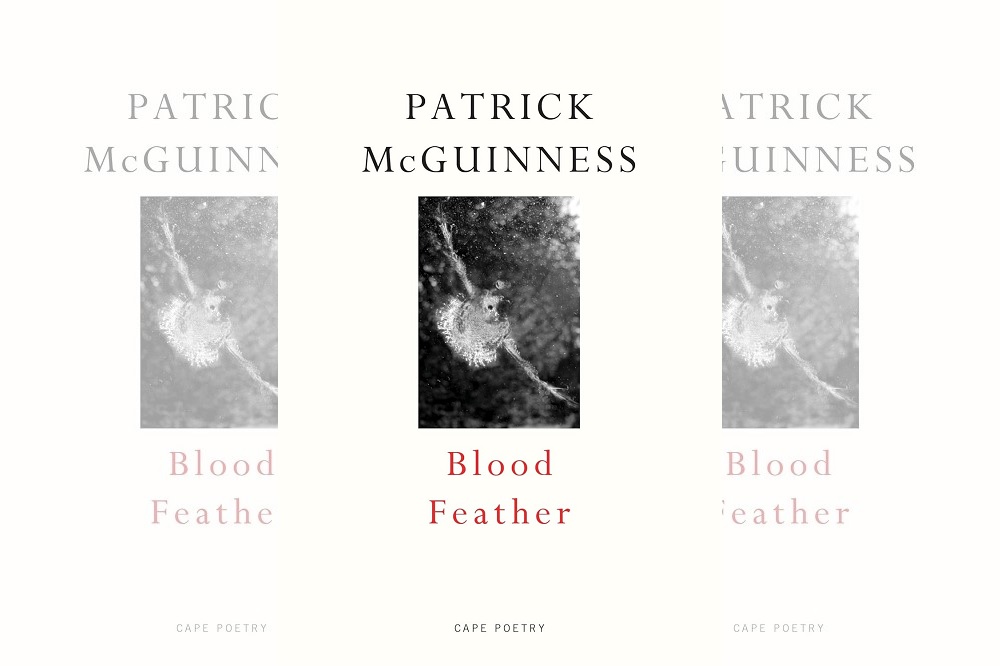Review: Blood Feather by Patrick McGuinness

Morgan Owen
These poems seem to me a dance between substance and absence – the pursuit of ghosts, in all senses of the word: phantoms, shadows, the past, even ourselves. They deal in the insubstantial and the incorporeal, but also in those things that remain with us, elusively.
But before my opening statement becomes a vague, catch-all appraisal of grief, which is the driving emotion of this volume, I must add that it is the precision with which these elusive things are pursued that sets these poems apart.
Tracing ambiguities in a twilight haze will always be a ready pitfall for a work of this sort, but it is avoided here, and the poet achieves a rare, brittle clarity.
Anguish
The first section of this volume of poetry lays the foundation that guides the rest. The poet pursues the memory of his mother, and captures in images the disjointedness and out-of-sync-ness that the dead leave in their wake.
Specific details return, such as her accent (she spoke French: ‘The new accent is a brace, / doing its slow work on your mouth. / At night you take it out to let your tongue / go dreaming outside its cage’, ‘New Accent).
Language and its limitations feature prominently in the poet’s reflections (‘When she spoke / her voice came from some far-off / dry-stone moorland where it echoed / across the acres razed inside her head’ ECT).
The image that gives the volume its title and is itself the title of one of the poems – ‘Blood Feather’ – seems to contain a guiding principle: a pigeon hits a window, makes a sound, presumably causes some commotion, or maybe simply slips away again, and leaves ‘a ghost against the glass’ which remains, for now, until ‘the next rain against the window’.
Things and people come and go, leave a trace – a noise and an outline, and eventually silence, their tracks worn away. It is this that underpins the poet’s anguish, such as his recollection of a phone conversation with his mother, presumably in a care-home: she ‘is puzzled / that all that’s left of me is this: a voice’ (‘Mother As Hostage’).
Haunted places
It’s difficult – and useless – to impose a simple narrative on a collection of poems, particularly in this case. In lieu of a narrative, the images guide us. Grief is not the only theme here, but also the places that are like grief, which also tend to be those places haunted by something or someone. Lacunae of a sort.
Places such as old factory towns (‘In the slackened tether of its moorings / the place we thought we lived in emigrated, and it was we who stayed behind /… / We didn’t know how thinly it all hung, / how quickly gone; / or how the edge was always near; / now that the edge is here’, ‘Factory Town’), Travelodges (‘You wonder who designs these places. / You find them off roundabouts, / after circumlocutions of motorway. / They are a way of never getting to the point’, ‘Travelodge’), old cooling towers (‘they had the permanence / of grey things: seen but rarely noticed; / or, if noticed, only once’, ‘The Cooling Towers of Didcot’), the ‘ghost stations’ of the Brussels metro (‘but still the trains pass through it, run it through, / reminding us how quickly these days we produce Oblivion, / how fast we waste, how obsolescence more and more / comes neck and neck with that it obsolesces / and soon may come before it. It probably already has’, ‘Ghost Stations’).
These examples may suggest a certain sombreness or melancholy, which could become tiresome, but these absence-laden poems, though tinged with longing, have a freshness about them. Maybe even a frisson, whereby the grey and fading things of the world suddenly reveal something beyond their taken-for-granted presence.
Nocturnal
The weaving of memory, landscapes and different times in these poems attests to the pervasive desolation of grief, and how it is in many senses a mode of being, more than a feeling.
Things blur into each other, and the effect of this volume is nocturnal, not in a necessarily dreamlike sense, but rather in the way that the familiar material of life appears slightly altered, its dimensions subtly changed, and time more elastic.
The final verse of ‘Mother as Perfume’ gives a good impression of this effect, the lingering: ‘Scent is what’s caught as it goes, scent is the going: / the turn of the shoulder, the swing of the door, / the sillage, the vapour-trail, the dissolving wake; / the smoke of the candle is the shadow of its flame’.
Blood Feather by Patrick McGuinness is published by Cape Poetry. It is available from all good bookshops.
Support our Nation today
For the price of a cup of coffee a month you can help us create an independent, not-for-profit, national news service for the people of Wales, by the people of Wales.





